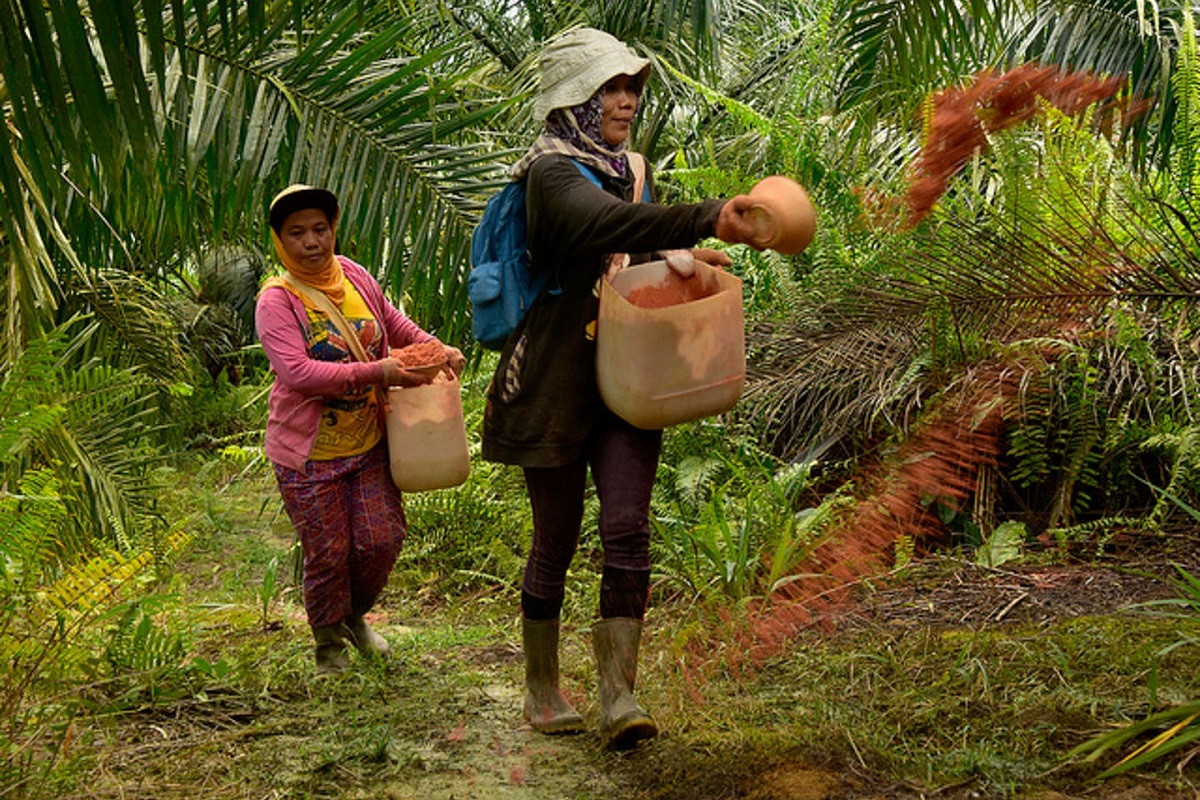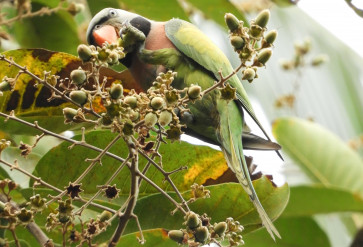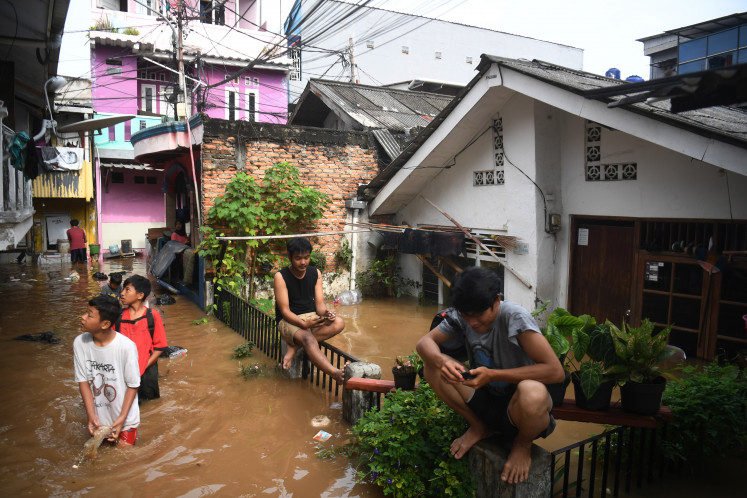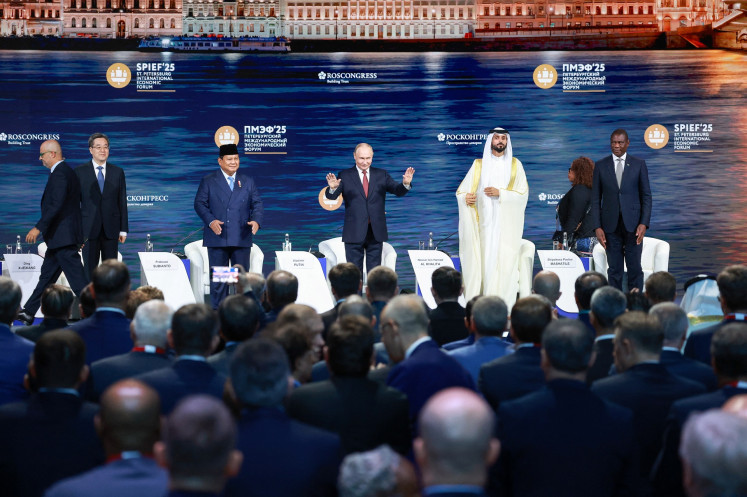Popular Reads
Top Results
Can't find what you're looking for?
View all search resultsPopular Reads
Top Results
Can't find what you're looking for?
View all search resultsNational interests in agriculture trade agreement
We should remain committed to implementing WTO reform because it is more useful for developing countries, such as Indonesia, which tend to be in a defensive position.
Change text size
Gift Premium Articles
to Anyone


Host Indonesia has proposed three agricultural issues to be discussed in the Group of 20 (G20) summit later this year. Departing from the efforts to balance domestic production with export-import, one of the issues being raised is a shared commitment to promoting global agricultural trade. It is hoped that all nations can access food properly.
Global trade cooperation forums include the World Trade Organization (WTO). A ministerial-level meeting, the WTO Ministerial Conference (MC), had been planned in Kazakhstan in 2020 but the pandemic forced it to be postponed to the end of 2021 where it was held in Geneva.
As the only international organization with a "legally binding" nature – although trust in the WTO has begun to erode, especially since the 10th MC negotiations in Nairobi – there is still hope to restore the role of WTO in keeping global trade transparent and predictable. The commitment to implementing WTO reform should be maintained because it is more useful for developing countries, such as Indonesia, which tend to be in a defensive position.
Indonesia plays an important and unique role, as it is still the coordinator of 47 developing countries for the G33, a group trying to counterweigh the position of the large agricultural producing countries that fall under the Cairns group. Indonesia, with its wealth of natural resources and the size of its economy, is a member of both groups that tend to move forward with an offensive approach in negotiations at the WTO.
Until now, developed or large countries and groupings such as the United States, the European Union, China and so on use domestic subsidy instruments to support the competitiveness of agricultural products in international markets. The commitment to abolish agricultural export subsidies was agreed upon at the 10th MC.
Theoretically, the global economic expansion of 5.5 percent in 2021 will be followed by creative destruction from a commodity supercycle (CSC). To anticipate the negative impact of the CSC, several things can be done at this time.
First, governments must take advantage of the windfall from the rising prices of various exported commodities to increase competitiveness and value-added. For example, President Joko “Jokowi” Widodo has encouraged the development of more downstream palm oil industries.
Second, related to the increase in food prices, which will disrupt the stability of domestic food security, Indonesia must be able to ensure sufficient food reserves, not only for the present, as a CSC is a long-term economic wave phenomenon. Along with the establishment of the National Food Agency, coordination of food policies can be carried out better, including the issue of procurement from domestic production or imports that have often been hotly debated. Food security in anticipation of the CSC is not only in the interest of Indonesia, but all countries in the world.
In the midst of a crisis of confidence in the international forum of the WTO, Indonesia still has to take advantage of its strategic position as the coordinator of the G33 to fight for its national interests.
There are at least three priority issues that need to be brought up by Indonesia that are expected to be the output of the WTO MC, in addition to the issue of export restrictions and transparency.
First, the issue of public stockholding (PSH), which includes the need for stock management and stabilization of food prices. Interim Solution PSH, a peace clause, was a fruitful result when the ninth MC was held in Bali. The PSH instrument is one part of the agricultural negotiation agreement (AoA) that must be continuously fought for, especially by countries that are members of the G33 and least developed countries.
It is hoped that the G33 proposals that have been submitted can become permanent solutions. If this is not fulfilled, at least the interim solution produced during the ninth MC in Bali will still apply. Of course, this expectation has been challenged by two groups, the G10 and the Cairns Group, which do not want a permanent solution from the PSH.
The second issue is the special safeguard mechanism (SSM), which is intended to protect farmers' products in the event of a surge in imports of agricultural goods. This instrument is urgent because there is still unequal competitiveness between developing and developed countries. In accordance with the mandate of the law, smallholders must receive protection, so a struggle for the SSM agreement is highly expected.
Domestic support for the agricultural sector is the third priority issue that needs to be addressed in the WTO forum. It is also a mandate of law that smallholders must be empowered.
The country must be present in the provision of agricultural infrastructure. With small land tenure and limited access to financial institutions for farmers, the struggle to defend the right to public financing for agricultural development is urgently needed.
Achieving an agricultural agreement in a multilateral trade forum is not an easy thing. It has been a long time since agricultural negotiations could be considered still part of the status quo.
The existence of the WTO can be seen as a forum to fight for the interests of developing countries in trade between countries, which is characterized by inequality in competitiveness, especially in the agricultural sector.
***
Muhammad Firdaus is a professor at the Department of Economics, IPB University and Nur Rakhman Setyoko is the director for multilateral at the Trade Ministry. These views are their own.









